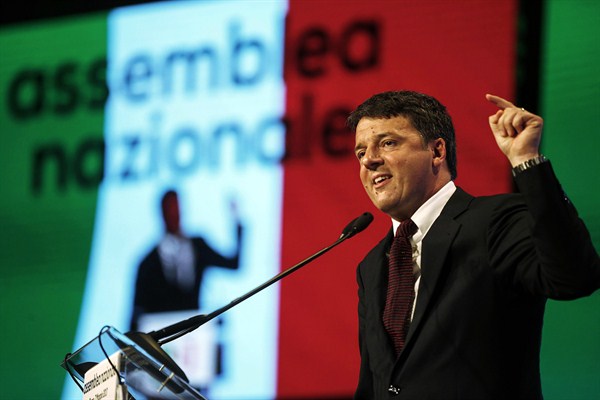On April 30, Matteo Renzi showed that rumors of his political demise were greatly exaggerated. Italy’s former prime minister found his career on the rocks following a humiliation in December, when the constitutional referendum he backed was defeated. But he proved that he could still command the loyalty of the overwhelming majority of supporters of the Democratic Party, or PD, by winning a convincing victory in the party leadership primaries. Nearly 2 million people voted—less than in previous contests, but still an impressive figure, especially since the vote coincided with a holiday weekend. Almost 70 percent cast a ballot for Renzi. Both the turnout and Renzi’s personal score were higher than anybody had expected.
Until the party vote, 2017 had been a grim year for the brash 42-year-old Florentine after the defeat of his much-heralded plans for constitutional reform. In February, the PD split, with some of the Italian left’s biggest names walking out rather than accept Renzi’s continued leadership of the party. His father is currently being investigated for alleged influence-peddling. Now back at the helm of his party, Renzi unexpectedly has an opportunity to set the agenda of Italian politics.
Will Renzi mobilize the PD’s parliamentary majority to return to Palazzo Chigi, the seat of the Italian prime minister, in triumph? Prime Minister Paolo Gentiloni, a former foreign minister, is no doubt getting nervous. Renzi is unlikely to ease him out, however. Gentiloni, himself a member of the PD, is an able politician heading a competent Cabinet stuffed with PD ministers. It makes more sense for Renzi to concentrate on campaigning for the 2018 general elections, although early elections in October cannot be ruled out.

